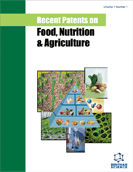Abstract
Objective: The sharp increase of pro-inflammatory cytokine becomes a severe problem in some degenerative diseases. This study aimed to investigate the effect of Cherry Leaf Extract (CLE) on pro-inflammatory cytokine production in hyperglycaemic mouse model. A recent patent mentioned that Muntinga calabura is a flavonoid-containing plant which is capable of reinforcing the stomach, appetizing, helping digestion (CN 201611138374), and improving stomach distention (CN106071017A). The efficacy of this miracle plant has inspired this experiment.
Methods: In this study, we induced hyperglycemia with high-fat diet and 20% fructose drink. Hyperglycemic mice were orally administered with CLE with the doses 420, 700, and 28000 mg/kg BW for two weeks. After treatment, the pro-inflammatory molecule was analyzed by flow cytometry from splenic cells.
Results: This study showed that CLE decreased the production of pro-inflammatory molecules such as IL-6, NF-κB, TNF-α, and IFN γ. In hyperglycemic mice, we found CD68+IL-6+, NK1.1+IL- 6+, B220+NFκB+, CD4+TNF-α+, and CD4+IFN γ + increased significantly (p < 0.05) compared to control mice without manipulation. After treatment with 420, 700, or 2800 mg/kg BW of CLE, the pro-inflammatory molecules decreased significantly (p < 0.05), and reached a normal physiology level.
Conclusion: CLE can suppress pro-inflammatory cytokines in hyperglycemic mouse model, suggesting this medicinal herb may be beneficial as a potential strategy for future therapeutic interventions in degenerative diseases or a disease involving cell activation.
Keywords: Hyperglycemia, Muntingia calabura L, cytokine, pro-inflammatory, physiological processes, pathogenicity.
Graphical Abstract
 23
23 3
3


















